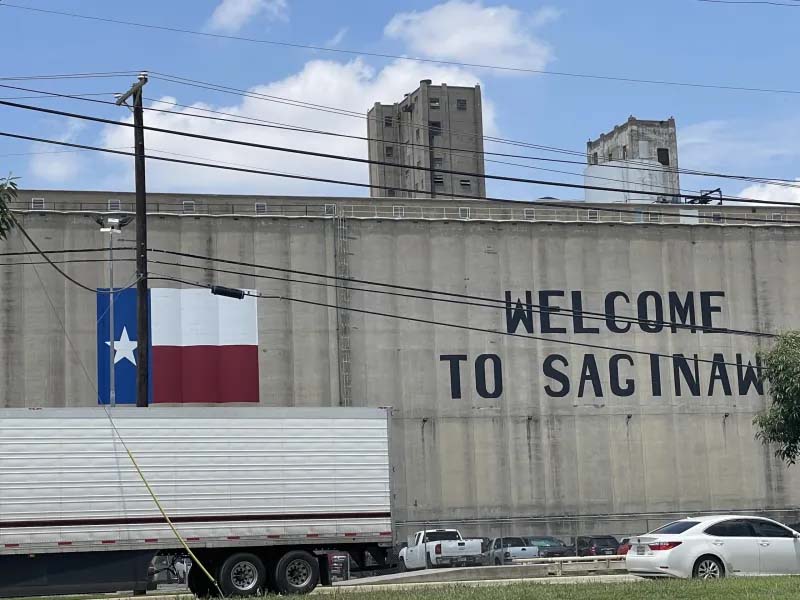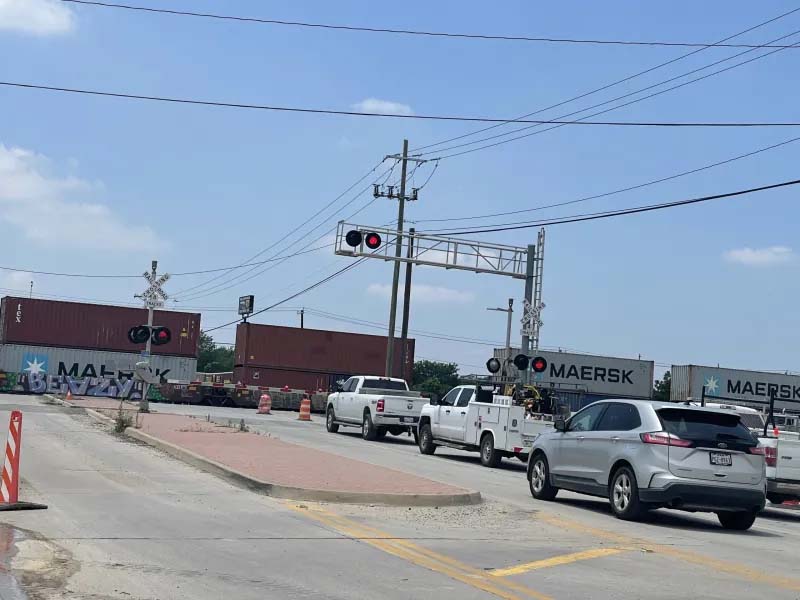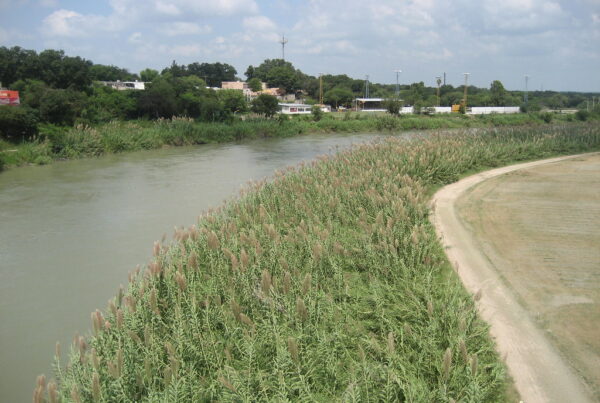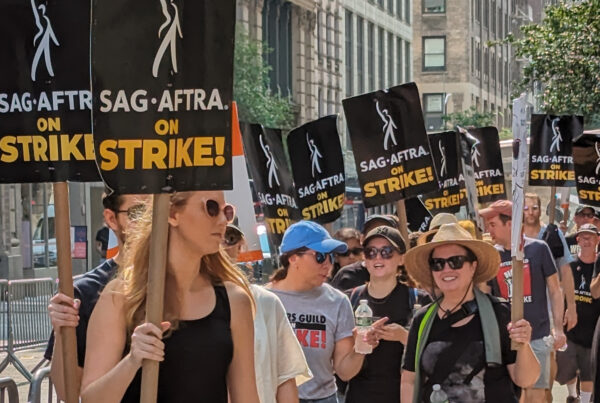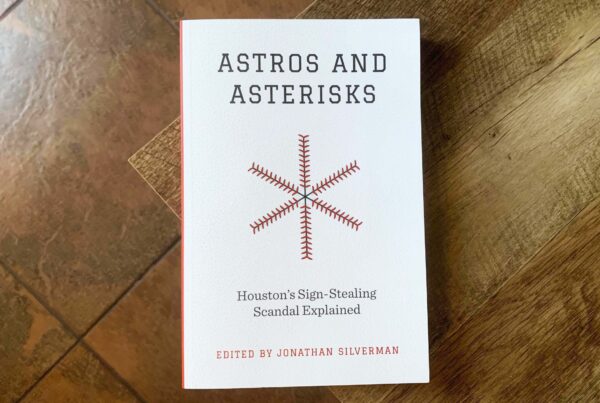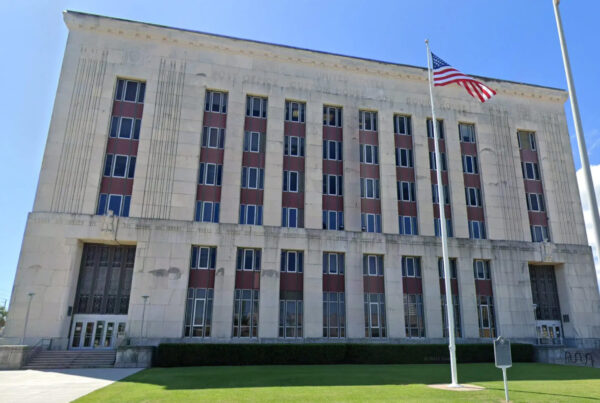From the Fort Worth Report:
The dinging bells of crossing gates and blaring horns of trains crossing roads is an everyday occurrence for Chad Beavers, plant manager of the family-owned business Cold Spring Processing. The business at 1300 Cold Springs Road near the Fort Worth Stockyards is surrounded by railroad tracks.
At least twice a week, Beavers said, trains block both exits from the business for hours at a time. Employees can’t drive through or out of Cold Springs Road, the main entry point to the business. But it’s more than an inconvenience — the business is losing money, he said. Trucks are stuck behind stopped trains, waiting to deliver grease from restaurants so the company can process it.
“It hurts us in our pocketbook because they’re not disposing of material here,” Beavers said. “And then it hurts them not being able to get back out to their (customers).”
Fort Worth’s status as a major rail hub comes with a price. It’s common across the city and Tarrant County to find trains at a complete stop or crawling along where tracks intersect roads. People — in cars, school buses, ambulances and big rigs — sit, and not always patiently, waiting for the trains to clear.
Over the past year, drivers sent hundreds of reports of trains blocking track-and-street intersections to the Federal Railroad Administration. Sometimes the trains are moving across the intersection for long periods of time. Other times, it stops for hours.
The administration is supplying nearly $87 million to build overpasses on five roads across cities in Texas where high traffic and rail crossings meet, including $17 million for an overpass at a railroad track crossing on Bonds Ranch Road near Saginaw. But it doesn’t put a dent in the long line of wasted time that drivers never get back.
Union advocates and industry experts say the reason for stops and delays is because train companies are making the trains longer as part of a profit-driven strategy called precision-scheduled railroading. Reductions in staff, shift changes and infrastructure also come into play.
Compounding the issue is that there are no federal or state laws in place that deter slow-moving or stopped trains, according to the FRA and the Texas Department of Transportation.
Rail companies in Texas previously could have faced criminal penalties if trains blocked a railroad crossing for more than 10 minutes. But in 2001, the U.S. Fifth Circuit Court of Appeals ruled that federal laws pre-empted the rule. The blocked crossing rule was removed from the Texas Transportation code in 2005.
The role of trains in Fort Worth and Texas
Rail plays a key role in the movement of goods that fuel the country’s economy. And for the past 20 consecutive years, Texas has been the No. 1 exporter of goods in the country, said Margaret Kidd, program director and instructional associate professor, supply chain and logistics technology at the University of Houston’s Cullen College of Engineering.
In 2021, for example, Texas exported $375.3 billion worth of goods out of the country from ports in Houston, Freeport, Beaumont and Corpus Christi, she said. Trains are a way to transport heavy materials like lumber, automobiles and grain to and from those ports.
“The majority of stuff that goes from country to country is by ship,” Kidd said. “Once these products get in the port, or have to leave the country … a train or truck is going to move this freight.”
Fort Worth is a major component of the network that makes Texas an exporting powerhouse. BNSF Railway is headquartered in Fort Worth. The city also hosts the Alliance Global Logistics Hub in far north Fort Worth, an inland port for transporting goods via air, rail or road.
In 2022, 2.5 billion pounds of cargo landed at Perot Field Fort Worth Alliance Airport according to Alliance. The Alliance intermodal rail facility placed or removed cargo units from trains 835,000 times a year, according to Alliance.
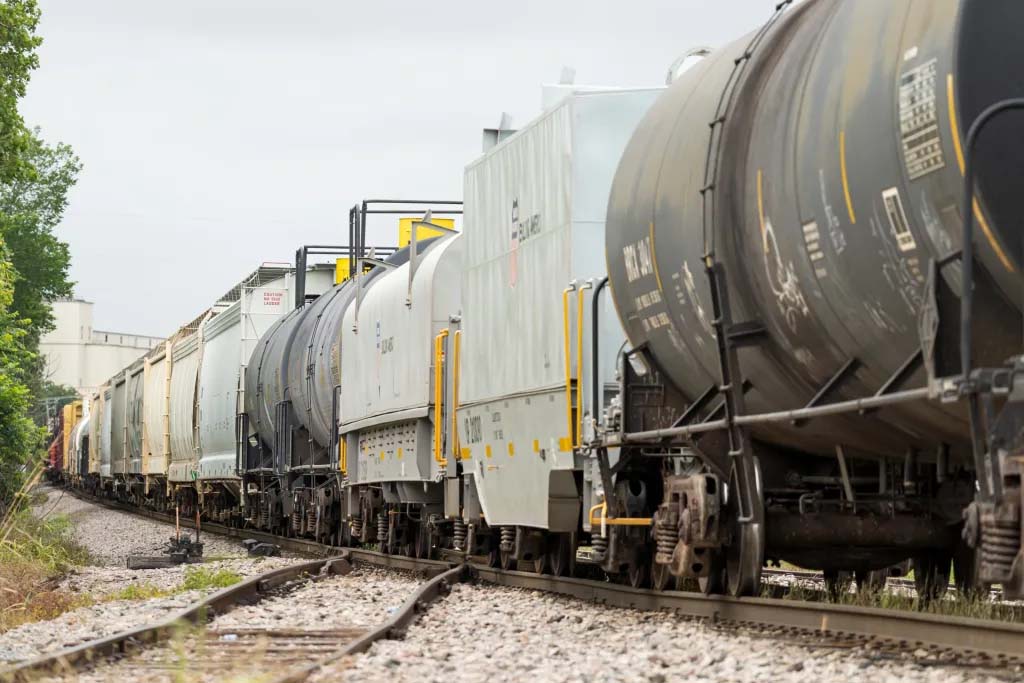
A train sits stopped on a crossing along Cold Springs Road on June 12, 2023. Cristian ArguetaSoto / Fort Worth Report
How many blocked crossings are there in Fort Worth and Texas?
Texas has the most reported train crossing blockages in the country, with 5,057 reports in the last 12 months as of July 6, according to a self-reported database by the public kept by the FRA. That’s more than double Illinois and Ohio, with the second and third highest number of complaints.
Train blocking a crossing? Here’s how to report it
– Crossings have a blue sign with a number to report a problem or emergency at crossings.
– Union Pacific encourages drivers to report issues at UP.com. For emergencies such as vehicles stopped on railroad tracks, hazardous material release and safety concerns, call 1-888-877-7267.
– Report a blocked crossing by going to this Federal Railroad Administration website.
– Questions from communities about BNSF and its operations can be directed here.
The database includes 272 reports of blocked crossings in Tarrant County over the last year. These numbers are likely underreported. Some drivers may not report blocked crossings or are unaware of the federal reporting database.



